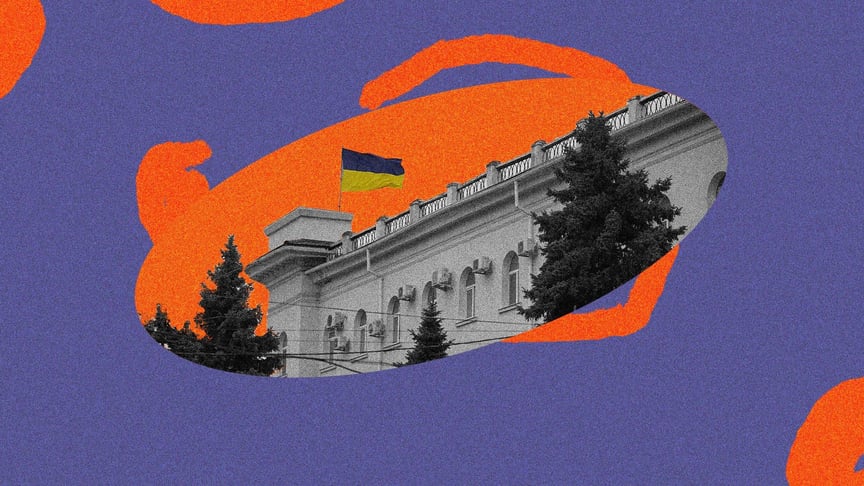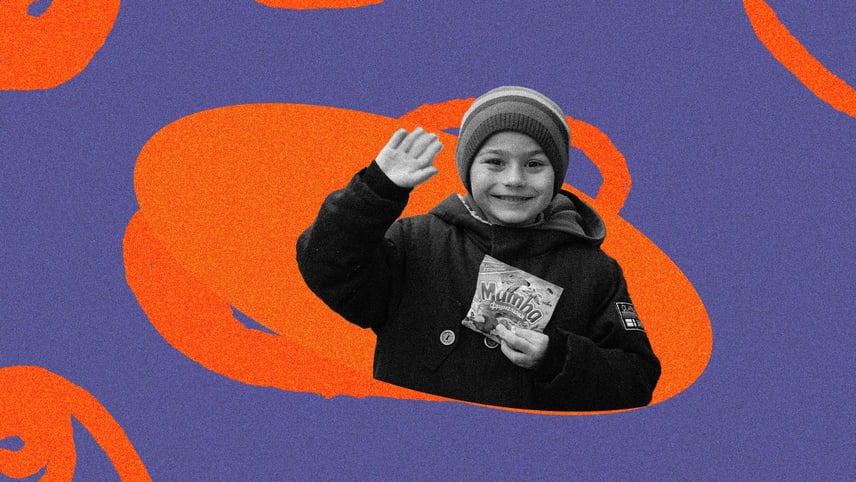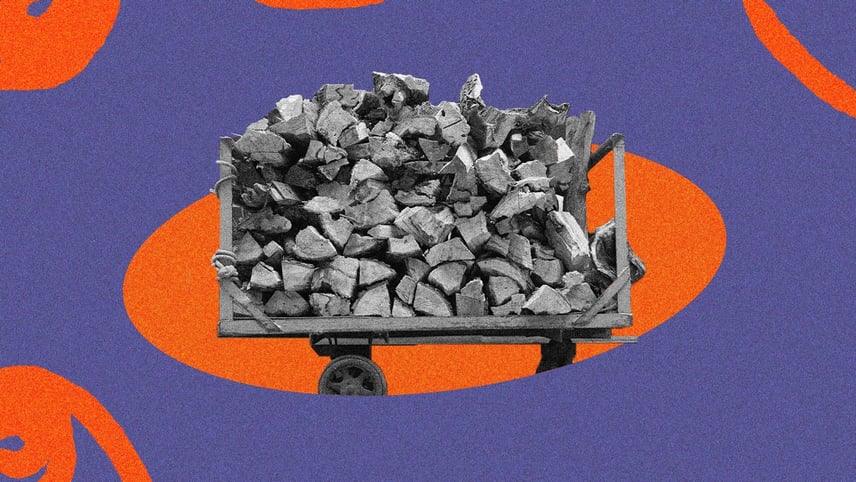"If the alarm sounds, we have 40 seconds to hide". Kherson a month after de-occupation

I am in Kherson for the second time since its liberation. A month after the de-occupation, the city changed significantly. Now there are no long queues for humanitarian aid and Ukrainian SIM cards, and no one charges phones in the open air on Freedom Square anymore.
The streets of Kherson are empty. And the closer you get to the Dnipro and, accordingly, to the left bank, the fewer chances to meet at least some of the locals. Kherson, loud and wrapped in Ukrainian flags in the first days of liberation, became quiet and hid.
“The feeling of joy has faded a bit because the danger has not passed”
The supermarket shelves are full of various products. Olia from Kherson chooses the goods she needs, pays, and we leave the store together. Next to the woman is her six-year-old son. She gives Bohdan a bag of jelly bears. The boy is happy and runs, jumping up and down, ahead of us. He does not pay attention to the dull explosions somewhere in the middle of the city.
“My son calmly reacts to the shelling. It's me who gets scared every time, it's stressful for me because I worry about my child. Now shells hit many houses, it's scary to go to bed because you don't know where it will hit next time,” says Olia.
Throughout the occupation, she and her son stayed in Kherson. They did not leave the city because they had no money or friends who could shelter them somewhere. The family was still hiding from the first explosions at the beginning of the full-scale war, but later stopped — Bohdan began to get very sick because of the dampness and cold in the basement. And then Kherson was captured by the Russians. Through the window, Bohdan saw enemy tanks and other hardware arriving. Long months of occupation began.
“They were going from house to house, taking people away. One man was shot on our street when he was going to work. We watched it all from the window of the apartment. It was scary, but we survived,” the woman recalls. “I was very happy when Kherson was liberated, but this feeling faded a little because the danger has not passed. The Russians moved to the other side of the river and now bomb residential buildings, often hitting nine-story buildings. Now we have no heating or water, there is only light from time to time”.
Suddenly our conversation is cut short. On the sidewalk, we see still relatively fresh traces of blood. Here a man was wounded by glass fragments. Olia points to a dilapidated office building where the Russians set up their bank during the occupation and issued passports nearby.
“A missile hit here a day ago. Thank God, we were already home then,” Olia says.
She walks this road with her son every day.

“From the hotel yard, we saw Grad shells flying”
In the backyard of the local hotel, people are warming themselves near the fire. A field kitchen is set up here: people cook lunches and heat water for tea. For more than 9 months the hotel has been hosting IDPs from the surrounding villages and Kherson itself. On February 27, local authorities asked the hotel managers to accommodate the first IDPs. Since then, more than 5 thousand people have passed through the center, says the administrator of the center Nastia Rybalchenko.
“When Kherson was occupied, the Russian military also brought their people here. We could not refuse, because they immediately started threatening us. They came with an escort, and he was covered in weapons like a Christmas tree with decorations. The Russians brought a lot of canned food, humanitarian aid, flour, sugar, buckwheat, and oil. And then, when the evacuation began, they threatened that they would lock us up if we did not go with them too.”
For the majority of IDPs, the hotel served as a transit point before going to Zaporizhzhia. The biggest number of people accommodated per night was 394, although the hotel is designed for 150. Some families came here in spring and still stay here.
“They have nowhere to go because they have lost their homes. During these 9 months, the hotel became a home for many. But with the beginning of the shelling, a large number of IDPs who lived with us left. From the courtyard of our hotel, we saw the Grad shells flying,” says Nastia.
“When the Russians were here, we all walked around with frowns”
Near the field kitchen, we meet Natalia. She warms her hands with a cup of hot tea with lemon. For nine months, Natalia and her four children have been living in a hotel room. They left their home in Oleksandrivka because of the shelling back in March.
“We came here and are staying here now. They are also bombing here, but not so much. We were about to go to the market today but did not go because of the shelling. Sometimes it stops, and then we hear explosions again. At night they shell the city more actively,” the woman says.
Natalia hopes to return home soon.
“The neighbors say that the house is intact, but when the Russians left the village, they took everything. Children really want to go home, but it is still dangerous there, the village is shelled, and there are many tripwires. My eldest son, who is 16, wants to go there, but I do not let him because I am worried about him,” says Natalia.
When I ask about the day when the Ukrainian Armed Forces entered Kherson, Natalia smiles: “I cried, and the children ran to hug and take pictures with our military. We are glad that Ukraine is here, but we do not live peacefully now. Although it is still better than under occupation because when the Russians were here, we all walked around with our heads down.”
There are three more families with children in this hotel. In total, 35 IDPs live there. The point is partially provided with light, and when it is turned off, the generator works.
“We had electricity for three days without interruption, and then the shelling started again — and it went off. We managed to buy 24 tons of briquettes for heating, and in total, we need 150 tons for the winter. We are moving our residents to the first floors, settling them together to save money and keep warm,” says Nastia.
The euphoria of the first weeks after the liberation of the city was dulled by everyday problems, the woman says. Now everyone is worried about how to survive the next months without proper heating, light, and water.
“There are more manifestations of greed. We distribute humanitarian aid to people, and they come back for it the next day. One old woman, to whom we gave food, was selling it near the supermarket the next day. People are used to being given everything for free. Now vacancies are slowly appearing. If three months ago, during the occupation, they could gnaw each other's throats for 3.5 thousand hryvnias, now if they are offered 6.5 thousand, they turn their noses up and say: "If you gave me 12, I would think about it",” says Nastia.

Russians strike randomly
The air alarm in the city has been adjusted. For the first time in 9 months of full-scale war, Kherson residents heard it in mid-November.
“But if the alarm sounds in Mykolaiv, they have about an hour to hide, and we have 40 seconds. Now we are beginning to experience what Mykolaiv experienced in the first six months of the war. Russians hit randomly: they hit houses, the road, and the football field. It is illogical. They do it only to harm and then blame the Armed Forces of Ukraine,” says Nastia.
Due to daily shelling, people continue to leave Kherson. However, Olia and her son Bohdan plan to stay in their hometown. Despite the understanding that it will be difficult.
“We are staying in the cold — there is no heating yet, and the shelling is just beginning. There is no joy while all this is happening. I want all our people and soldiers to return home alive. I want our life to be the same as before,” the woman says in parting.
- Share:
